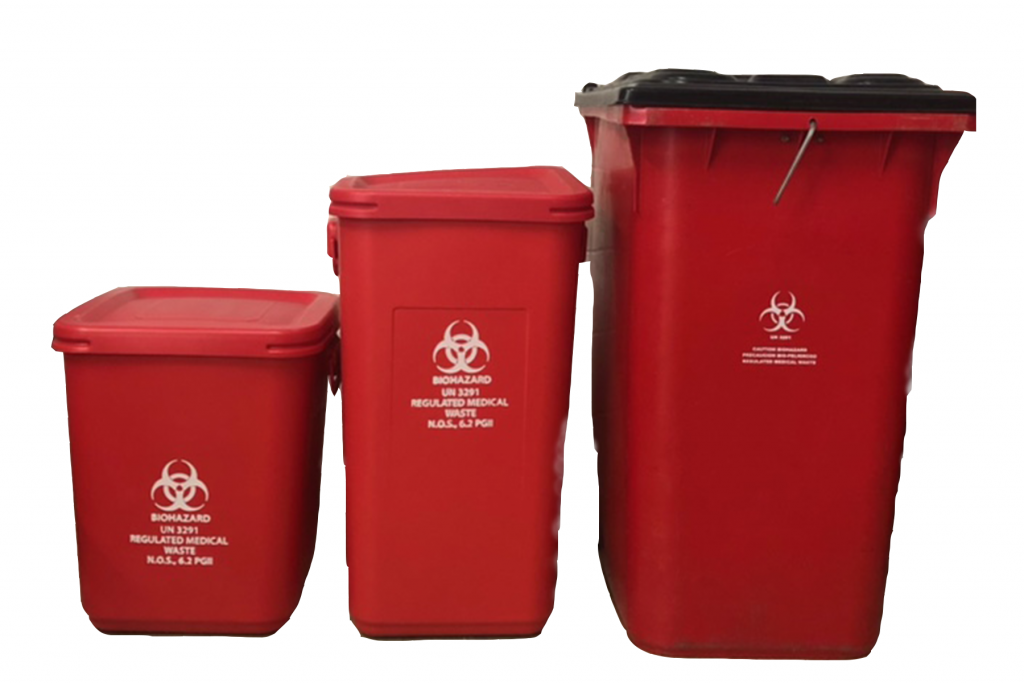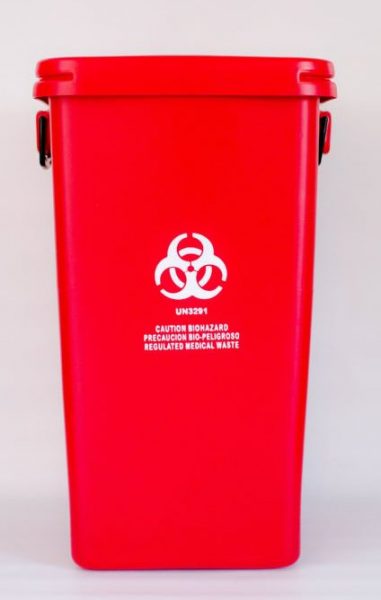Community Care: Seamless and Reliable Medical Waste Removal Near Me
Wiki Article
Remain Ahead of Rules: Specialist Suggestions on Medical Garbage Disposal
In a globe where the medical care sector is frequently progressing, it is important for clinical centers to remain ahead of regulations when it involves the proper disposal of medical waste. With stringent standards and regular governing changes, it can be challenging to browse the intricacies of this procedure. With professional guidance, facilities can guarantee compliance and minimize threats connected with improper waste disposal. From comprehending the various categories of clinical waste to executing the ideal collection and partition methods, this discussion will provide valuable insights and workable ideas to help facilities stay ahead of laws in the ever-changing landscape of clinical waste disposal.Understanding Medical Waste Categories
Recognizing clinical waste categories is important for proper disposal and administration in healthcare centers. Medical waste describes any waste produced by medical care activities that may posture a risk to public health or the setting. It is crucial to classify medical waste precisely to guarantee its secure handling, disposal, therapy, and transport.There are several categories of clinical waste that health care centers need to be acquainted with. One of the most common groups consist of transmittable waste, pathological waste, sharps waste, pharmaceutical waste, and chemical waste. Each classification has specific standards and regulations for its appropriate management and disposal.
Transmittable waste consists of materials contaminated with blood or other bodily fluids, such as gloves, dress, and research laboratory societies. Pathological waste refers to human tissues, organs, or body components that require special delivery and disposal. Sharps waste includes used needles, syringes, and various other sharp objects that can create injury and send infections. Pharmaceutical waste consists of expired, extra, or contaminated medicines that require careful handling and disposal. Last but not least, chemical waste includes solvents, anti-bacterials, and other chemical substances used in medical care centers.
Remaining Up-To-Date With Regulatory Modifications
Remaining current with regulative changes is critical for healthcare centers to guarantee compliance and correct administration of medical waste disposal. medical waste removal services. With guidelines continuously progressing, it is crucial for health care facilities to remain current to stay clear of penalties, fines, and potential injury to the environment and public healthTo stay ahead of regulatory changes, medical care centers ought to establish a system for monitoring and monitoring updates. This can be done by registering for regulatory newsletters, attending conferences and workshops, and proactively joining sector organizations. Furthermore, facilities need to assign an employee or group responsible for staying educated and disseminating info to appropriate stakeholders.
Normal interaction with regulatory firms is additionally essential. Medical care centers ought to develop relationships with regional, state, and federal agencies to ensure they understand any kind of adjustments in laws that may impact their waste management methods. This can be done through regular meetings, involvement in public comment durations, and aggressive engagement with governing firms.
In addition, health care centers must think about partnering with waste administration companies that focus on medical garbage disposal (medical waste disposal services with WasteX). These business are frequently skilled in the most recent regulations and can offer assistance and support to make sure compliance
Applying Proper Collection and Partition Techniques
To effectively handle clinical waste disposal, healthcare facilities must establish appropriate collection and segregation techniques in conformity with regulative guidelines. Carrying out these techniques makes sure the risk-free handling and disposal of possibly unsafe materials, safeguards the environment, and lessens the threat of injuries and infections to medical care employees and the public.
Proper collection and segregation methods entail the use of designated containers and labeling systems. Healthcare centers need to provide clearly identified containers for different kinds of clinical waste, such as sharps, transmittable waste, pharmaceutical waste, and non-hazardous waste. These containers must be color-coded and plainly significant to stay clear of confusion and promote very easy recognition.
Furthermore, healthcare centers must train their staff on the proper procedures for gathering and segregating clinical waste. This consists of enlightening them on the different types of waste, the ideal containers to make use of, and the importance of following standards and guidelines. Routine training sessions and correspondence course should be performed to guarantee that team member remain updated on best techniques.
Moreover, healthcare centers should develop a system for routine collection and disposal of clinical waste. This may entail partnering with certified waste monitoring business that focus on medical garbage disposal. These companies will make certain that the gathered waste is carried and disposed of in compliance with governing requirements.
Selecting the Right Disposal Methods

Incineration is just one of one of the most typical and reliable techniques for disposing of certain kinds of clinical waste, such as pathological waste and sharps. It entails the regulated combustion of waste at heats, decreasing it to ash. Nevertheless, incineration can release harmful pollutants right into the air and add to air contamination.

Chemical therapy involves the use of chemicals to sanitize and reduce the effects of the waste. Microwave therapy makes use of microwave energy to heat and disinfect the waste.
Making Sure Conformity Via Documents and Training
After meticulously considering the appropriate disposal methods for medical waste, health care facilities need to make sure conformity with guidelines and decrease ecological influence by applying reliable documents and training treatments. This step is critical in preserving a risk-free and sustainable setting for both healthcare workers and the general public.
Training is equally crucial in making certain compliance with guidelines. Medical care workers that handle clinical waste ought to obtain ideal training on waste segregation, managing, and disposal procedures. This training should cover topics such as the appropriate usage of personal protective devices, identification of various kinds of waste, and the right disposal methods for every waste group. By supplying comprehensive training, health care centers can equip their team to make enlightened choices and reduce the threat of inappropriate garbage disposal.
Conclusion
To conclude, staying in advance of laws in clinical garbage disposal is critical for medical care centers. medical waste removal. Understanding the various classifications of medical waste, remaining upgraded with regulative visit changes, executing proper collection and partition approaches, picking the ideal disposal techniques, and guaranteeing compliance via documents and training are all necessary steps. By following these standards, health medical waste disposal services with WasteX care organizations can effectively take care of and dispose of medical waste in a accountable and safe wayFrom understanding the various classifications of medical waste to applying the best collection and partition techniques, this discussion will provide workable ideas and valuable understandings to assist facilities remain in advance of regulations in the ever-changing landscape of medical waste disposal. - medical waste disposal services with WasteX
The most common categories consist of transmittable waste, pathological waste, sharps waste, pharmaceutical waste, and chemical waste. Healthcare facilities ought to supply plainly identified containers for various kinds of clinical waste, such as sharps, infectious waste, pharmaceutical waste, and non-hazardous waste. Healthcare facilities ought to establish a detailed system to videotape and track all aspects of medical waste disposal, including kinds of waste created, amounts, and disposal approaches used. Healthcare workers that handle clinical waste needs to obtain ideal training on waste partition, dealing with, and disposal procedures.
Report this wiki page